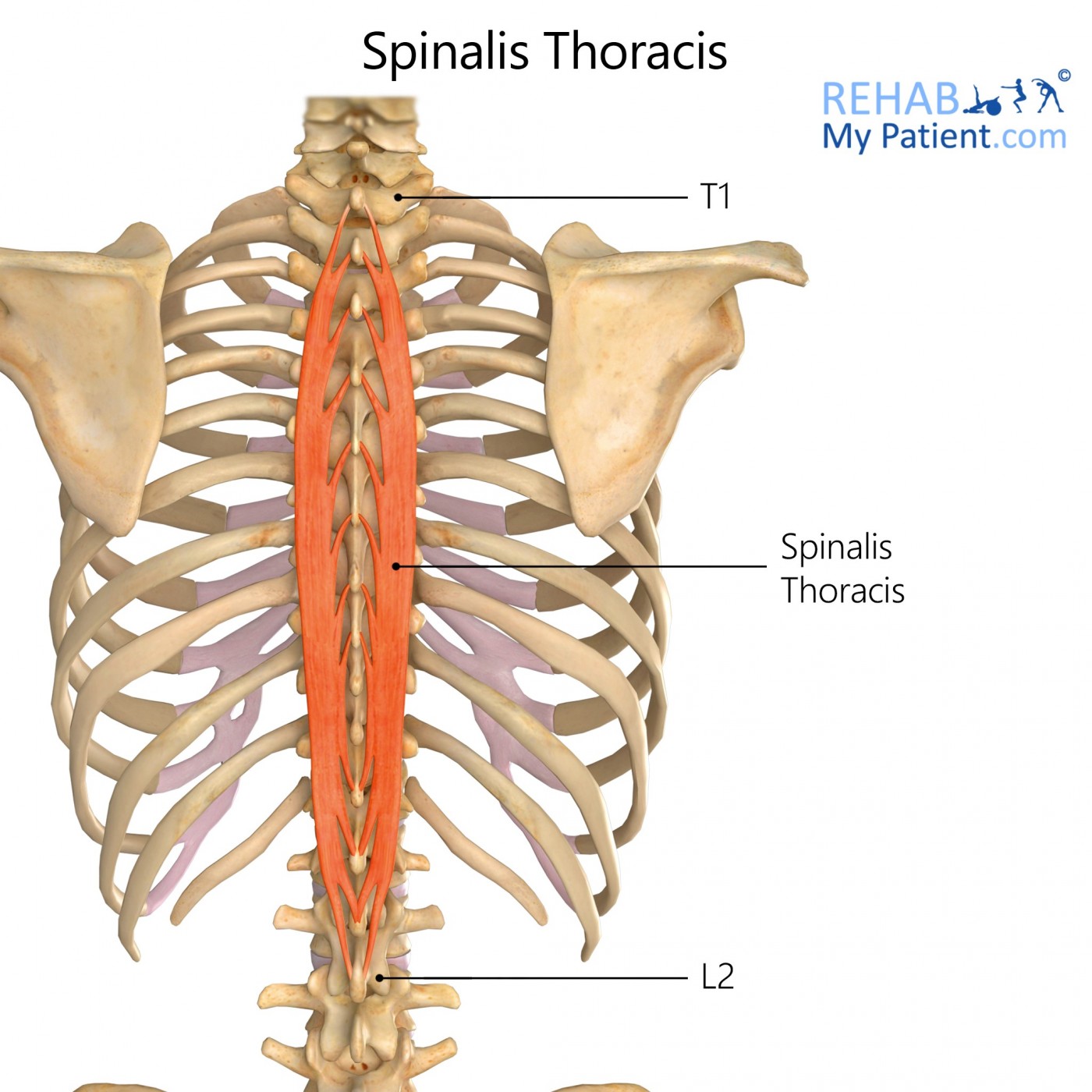
General information
Spinalis thoracis is barely separated as one of its own muscles. It is nestled at the medial side of the longissimus dorsi and is blended intimately with it, united with the semispinalis dorsi which is immediately beneath it. It arises by three to four tendons out of the spinous processes from the first two lumbar and the last two of the thoracic vertebrae. The tendons unite to form a small muscle that is inserted from separate tendons into that of the spinous processes for the upper thoracic vertebrae with the number ranging from four to eight.
Literal meaning
Thorny breastplate, or chest.
Interesting information
The spinalis thoracis muscle is part of the erector spinae muscle group located adjacent to the spine. This muscle is attached to the segments of the thoracic spine, which is adjacent to the shoulder blades. It is buried deep underneath the layers of muscle that make up the mid-back, such as the trapezius, rhomboids and the latissimus dorsi.
Erector spinae muscles are responsible for helping to keep the posture straight and arching or extending the back. When the spinalis thoracis muscles are weak, they can contribute to poor posture and mid-back pain. Countless factors cause dysfunctions of the spine, but weakness will contribute to a slouching posture. Exercising the muscles will help to prevent any dysfunction of the spinal column.
Origin
Sides of the spinous processes of T11-L2.
Insertion
Sides of the spinous processes of T11-T8.
Function
Aids in extension of the vertebral column.
Nerve supply
Dorsal rami of lumbar and thoracic spinal nerves T4-L1.
Blood supply
Dorsal branches of the posterior intercostals arteries out of the thoracic aorta.

Relevant research
There are differing opinions on whether the spinalis muscle should be divided into three separate components, the spinalis thoracis, cervicis and capitis, or whether it is one muscle. This study aimed to investigate this differing morphology. The study found three different morphological conditions: the distinct condition, where the spinalis exists as a separate unit, the blended condition, where the muscle fibres blend with those of the semispinalis muscle, and some examples where no evidence of the spinalis muscle fibres could be found. Statistical analyses did not show any correlation between muscle variation and the sex of the individuals or side of the body.
Greiner TM, Bedford ME, Walker RA. Variability in the human m. spinalis capitis and cervicis: frequencies and definitions. Ann Anat. 2004;186(2):185?191. doi:10.1016/S0940-9602(04)80039-6
Spinalis thoracis exercises

Standing Extension
Standing up with good posture, extend your back by arching your spine backwards. You can place your hands in the small of your back for support if you require. Start gently, and keep the exercise within your comfort zone.

Alternating bird dog
The bird dog exercise works to target all of the erector spinae muscles. Kneeling on a mat on all fours, place the hands below the shoulders and the knees below the hips. Raise the right arm straight out beside the head while lifting and extending the left leg out behind the body. Lower both the arm and the leg to the original starting position and repeat with the left arm and the right leg. Complete the movement without making any jerking movements. Alternate back and forth between the right and the left sides for the duration of the exercise. Complete 10 repetitions for each side.
Sign Up
Sign up for your free trial now!
Get started with Rehab My Patient today and revolutionize your exercise prescription process for effective rehabilitation.
Start Your 14-Day Free Trial